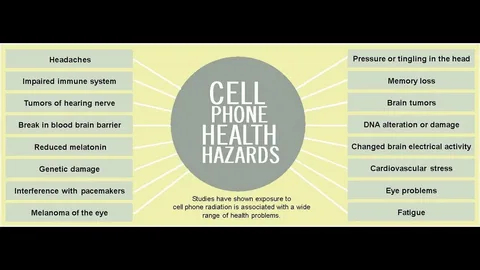20 Warning Signs Your Body Might Be Sending You About Hidden Health Risks
Your body is an incredible machine, constantly sending signals to indicate its needs and health status. However, some of these signals might be subtle and easy to overlook.

1. Persistent Fatigue If you’re constantly tired despite adequate sleep, it could indicate anemia, sleep apnea, or thyroid dysfunction. For example, research by the National Sleep Foundation shows that fatigue can also be an early sign of diabetes.
2. Unexplained Weight Loss Losing weight without trying could signal serious issues like cancer, thyroid disease, or gastrointestinal disorders. A study published in the Mayo Clinic Proceedings linked unexpected weight loss to pancreatic cancer in some cases.
3. Frequent Headaches While headaches are common, frequent or severe headaches may indicate high blood pressure, migraines, or even a brain tumor. Always consult a healthcare professional if they persist.
4. Changes in Skin Color or Texture Yellowing of the skin (jaundice) might suggest liver issues, while dark patches can be linked to insulin resistance or diabetes. Dermatologists often recommend examining moles for signs of melanoma.
5. Persistent Coughing A cough lasting more than three weeks could be a sign of asthma, chronic obstructive pulmonary disease (COPD), or even lung cancer. Smokers should be particularly cautious of this symptom.
6. Sudden Vision Changes Blurred or double vision can indicate a stroke, diabetes, or multiple sclerosis. According to the American Academy of Ophthalmology, vision changes warrant immediate medical attention.
7. Chest Pain Chest pain isn’t always heart-related but should never be ignored. It could signify a heart attack, acid reflux, or pulmonary issues. A 2020 study in the Journal of the American Heart Association highlights its importance as a critical symptom.
8. Chronic Digestive Issues Bloating, diarrhea, or constipation lasting weeks could point to irritable bowel syndrome (IBS) or even colorectal cancer. Regular screening is crucial for early detection.
9. Shortness of Breath Unexplained difficulty breathing might indicate heart failure, asthma, or even a pulmonary embolism. Seek medical help if this occurs suddenly or frequently.
10. Frequent Urination Excessive urination can be an early sign of diabetes or a urinary tract infection (UTI). Keeping track of this symptom can help your doctor pinpoint the issue.
11. Changes in Nail Appearance Brittle nails or unusual discoloration might signal nutrient deficiencies, fungal infections, or even conditions like psoriasis or heart disease.
12. Persistent Fever A fever lasting more than three days could indicate infections, autoimmune disorders, or even cancers like lymphoma. Monitor accompanying symptoms for better diagnosis.
13. Numbness or Tingling These sensations, especially in the extremities, might be signs of nerve damage, multiple sclerosis, or a stroke. Early intervention can prevent worsening.
14. Mood Swings or Depression Sudden mood changes or chronic depression can sometimes indicate hormonal imbalances, thyroid issues, or even early Alzheimer’s disease.
15. Unusual Thirst Feeling excessively thirsty could be an early symptom of diabetes. According to the American Diabetes Association, this occurs due to high blood sugar levels.
16. Persistent Back Pain While often attributed to posture or injuries, persistent back pain can signal kidney infections, herniated discs, or even certain cancers.
17. Changes in Appetite A sudden increase or decrease in appetite might indicate thyroid dysfunction, stress, or gastrointestinal issues like ulcers.
18. Swelling in Limbs Edema, or swelling in the hands, feet, or legs, could point to heart, kidney, or liver issues. Compression stockings and prompt medical evaluation can help.
19. Difficulty Swallowing This symptom might suggest esophageal disorders or throat cancer. If accompanied by weight loss or coughing, seek immediate attention.
20. Night Sweats Frequent night sweats can be a symptom of infections, menopause, or even cancers like lymphoma. Keeping a symptom diary can aid in diagnosis.
Conclusion
Your body’s warning signs should never be ignored. By staying alert to these 20 symptoms and seeking timely medical advice, you can catch hidden health risks before they escalate. Prioritize regular check-ups, listen to your body, and adopt a proactive approach to maintaining your health. Early detection saves lives, and being informed is your first line of defense.
What's Your Reaction?



















